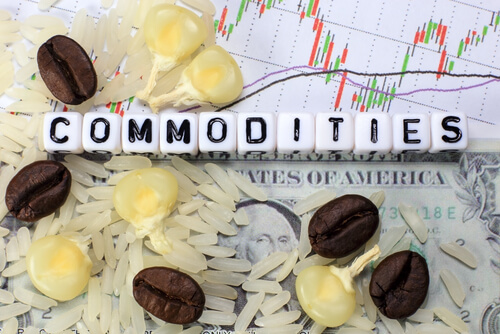A person who is interested in a career in banking, finance, investments or a related subject may wonder, “What are commodity markets?” This is also good to know for a person who wants to do more trading on the stock market or to manage their own investments. Understanding what commodities and the commodities market are could help a person plan their professional and financial future with more success.
Related Resource: 50 Best Online Master of Finance Degree Programs
How the United States Government Defines a Commodity
What a “commodity” is was defined by the United States federal government in 1936 as a part of the Commodity Exchange Act. The Act defines a commodity as hard assets, such as wheat or oil. The act spells out how natural resource and agricultural commodities can be traded in different marketplaces. Financial products are also treated like commodities, but they are not commodities per the Act.
Types of Commodities
There are a few ways to define or categorize commodities. One is to group them by origin. There are three groupings for this method, and they include metals, energy and agricultural. The metal commodities include silver, gold and platinum. The energy grouping includes oil, gasoline and natural gas. The agricultural category includes wheat, corn, sugar, coffee and animals that become food. It also includes things that are not food but are agricultural products, such as cotton. Another way to categorize commodities is by “hard” or “soft.” “Hard” commodities include natural resources that are mined or extracted. “Soft” commodities are agricultural products and livestock.

What a Commodity Market Is
According to Investopedia, a commodities market is a physical or virtual market where trading of one or more commodities takes place. The activities in a commodities market include buying, selling or trading the actual commodity or primary products from the commodity. Around the world, there are about 100 products traded as commodities. There are about 50 commodity marketplaces where the buying, selling and trading takes place. The markets are a type of open exchange, and the commodities sold there tend to be volatile in their volumes and values.
How Commodities Markets Work
Commodities dealers buy, sell and trade on an open exchange. This means a constant fluctuation in pricing. Consumers notice this in places such as the gas station, where the price of a gallon of unleaded gasoline or diesel fuel could change a couple of times in just one day. The volatility in the markets make some lines of work risky. For example, volatility in the prices of agricultural products puts farmers at risk of financial failure. This is one of the reasons why the United States federal government provides farmers with subsidies in order to offset some of the market volatility in agricultural goods. The highest volume of trading in commodities markets is in metals. It is not feasible to actually transport the bulky and heavy metals, so the actual commodity that is bought, sold or traded is a futures contract for those metals.
Understanding commodities markets could help a person who is just getting started with their studies in economics, finance or a related subject. This knowledge could also be helpful to a person who is ready to step up their investments game. Knowing the answer to, “What are commodity markets?” is a good step forward for personal, professional and financial success.
